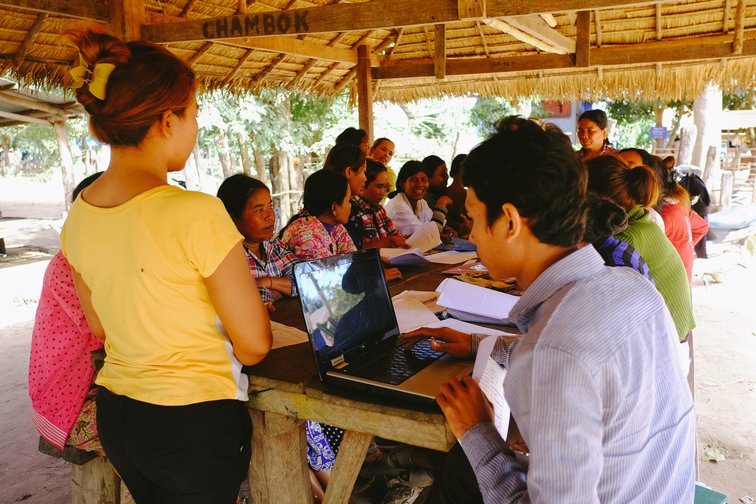“Funding is…a matter of collective experimentation – and even of historical creation or invention.”
This quote – from Brazilian academic and activist Marcelo Lopez de Souza – sums up one of the key lessons we’ve learnt from working with a diverse range of community development practitioners and academics from across the globe who are grappling with the pitfalls and possibilities of using different funding models: there are no easy answers to the dilemmas associated with resourcing egalitarian social and economic change. Instead we have to name and deal with the complex ways in which power operates through different funding arrangements, and experiment with new ways of generating resources while holding firm to the principles of participatory democracy.
Throughout history, community-based organisations and social movements have served as a seedbed for popular democracy, egalitarian change, and social transformation. From the workers co-operative movements of the 19th century to the Zapatistas of today, community-based struggles have been crucial to building democratic institutions and creating new forms of democratic life. A healthy participatory democracy relies on forms of community development that support effective mobilisation at the local level and encourage advanced capacities for democratic decision making and critical thinking.
Of course, community organisations have also been used to advance projects of imperialism, colonialism and social control. To make an obvious but important point, there is nothing inherently progressive about community development: it is an arena of democratic struggle, so the specific ideas, values, practices and institutions developed in communities matter a great deal for their transformative potential.
But if participatory democracy relies, at least in part, on democratic community development, then this necessarily brings us to questions of funding whenever local struggles need access to more resources than they can generate on their own. However, the political and economic changes brought about by neo-liberalism over the last 40 years have weakened decentralised democracy and profoundly influenced how community development is funded. These changes have made it much more complex and difficult to source and sustain funding for transformative purposes. We want to highlight three developments which we think are particularly significant.
First, the redistribution of wealth upwards has dramatically tipped the balance of power towards the rich. According to Oxfam, the richest 1% of the population owns more wealth than the rest of the people on the planet put together. Against this background, democratic decision-making has become increasingly subordinate to corporate lobbying, and it has become harder to ensure that multinationals such as Apple make a fair (or even any) contribution towards social development.
This complicates the funding landscape for community organisations because – mirroring these wider trends – billionaire philanthropists are shaping public policy at a level that was unimaginable a generation ago. Egalitarians rightly baulk at the anti-poor, pro-corporate policies advanced behind the scenes by right-wing donors such as Charles and David Koch, but what of the boom in progressive philanthropy?
Are philanthropists who are pumping money into progressive think tanks, strategic litigation and NGO advocacy on issues like LGBTQ rights or prison reform also a symptom of a broken democracy? Money may be pouring into causes and campaigns that radicals hold dear, but it is just as unaccountable as conservative funding and rarely mobilises disempowered communities – as opposed to supporting intermediaries to work ‘on their behalf.’
Second, and this is a key feature of neoliberalism, the growing power of financial institutions and the associated rise of social finance have had a marked effect on community development. A plethora of financial instruments are now being deployed to foster social and economic ‘inclusion’ in poor communities in ways which blur the boundaries between public and private, local and global.
As research by Debarati Sen and Sarasij Majumder illustrates, the results of this blurring are complex. They show how poor women involved in microcredit programmes in Darjeeling, India, initially enjoyed a new-found sense of economic freedom. They soon tired, however, of managing the burdens of debt repayment and the household and community tensions which ensued. Ultimately many abandoned the banks, though they did not abandon debt, establishing instead a system of inter-lending among their own self-help groups that was both more democratic and less divisive.
Third, governments are partnering with an increasingly varied range of actors to find marketised ‘solutions’ to community needs, from NGOs and foundations to corporations and social entrepreneurs. As a result, community organisations are negotiating with a much broader array of institutions, terms, procedures and practices, and therefore have to deal with the power relationships that come with them.
In South Africa for example, Natascha Mueller-Hirth has found that NGOs increasingly act as professional intermediaries between local communities on the one hand, and state or corporate partners on the other. The auditing procedures and governance rules of these partners squeeze out radical and ‘non-professional’ community organisations, while NGOs ‘walk the tightrope’ between their commitment to egalitarian politics and their role as ‘tender factories’ that compete for contracts to deliver outsourced services to poor communities on behalf of the state.
These developments create a thicket of difficult questions around power and money which preclude simple answers or universal strategies that can be used across the board. If the aim is building democratic power in the here and now, however haphazardly, then ‘off the peg’ ideological responses such as ‘only rely on locally-generated funds’ or ‘demand more public funding’ simply will not work.
Instead, we need to promote a dialogue across different contexts between communities, researchers and activists about funding issues, with the aim of developing a widespread form of ‘critical literacy’ around the resourcing of social change. This is the only way of making sense of, and responding effectively to, the complexity of the contemporary funding ‘scene.’
Our new book tries to kick-start such a movement. By analysing a range of case studies it’s possible to unpick how power and funding intersect across the local, national and global levels, and to explore how these insights might be used to give democratic movements more leverage over finance.
For example, in Rojava, northern Kurdistan, European Union funding has been used to support a radical experiment in municipal and regional autonomy despite the opposition of the Turkish state. In a very different setting, the Nepalese NGO TEWA has used support from North American women’s groups to launch their own feminist-inspired initiatives in a context where the state has ceased to support civil society, and where existing funding regimes often render women invisible.
These and other examples underscore the importance of making funding arrangements negotiable i.e. open to meaningful community influence and control. When national and international funding sets the agenda from ‘above’ in terms of goals or processes defined by timeframes that are too short or unpredictable, democratic community development is set back, not advanced.
Take the example of lavish but short-lived funding from the mining multinational BHP Billiton to local communities in Ravensthorpe, Australia. The amount of money was enormous, but in no way was it accountable to local people or to broader social needs. When the company pulled out of Western Australia in 2009 due to falling commodity prices, the full impact of this largesse became apparent when grants to community groups abruptly ceased.
What these examples also show is the vital importance of the notion, however minimally defined, of funders who are committed to the public or common good rather than simply advancing their own private interests, concerns and priorities. In that sense the state at the local and national level often remains the most obvious source for funding community development. But as the South African and Australian cases indicate, the complex nature of state-market relations in the present era means that this conclusion can’t be taken at face value. Activists and communities need a sophisticated understanding of how states actually operate, and a clear-eyed sense of how much margin for freedom exists for democracy-building in particular contexts.
By way of conclusion it’s important to note that a heightened sense of democratic possibility has been crucial to the most extensive and ambitious attempts to foster democratic forms of community life such as in Rojava and Chiapas. In these examples, questions of funding simply cannot be separated from the wider tasks of building democratic institutions and reimagining what we mean by political participation: debates about money are debates about democracy and social change.
This means extending democracy to workplaces such as co-operatives and self-managed enterprises, as well as into finance and the management of money in ways that support democracy, equality and empowerment. One can point to the specificity of political conditions in places like Rojava, but the fundamental questions they are trying to tackle are universal: how best to translate local initiatives into systemic change and make money the handmaiden of deep-rooted social transformation.
Fergal Finnegan and Niamh McCrea are the editors of Funding, Power and Community Development, published by Policy Press.





